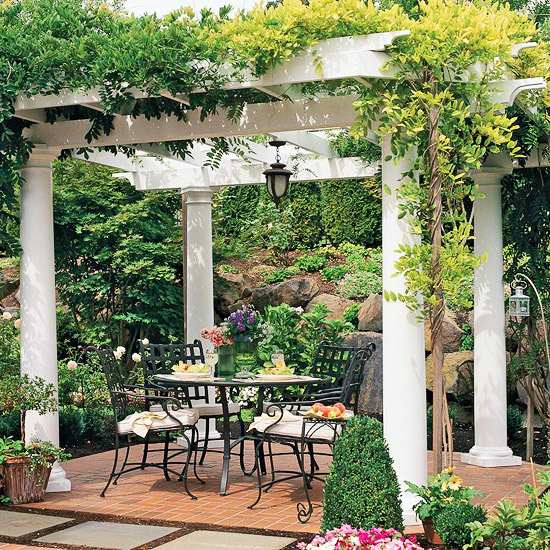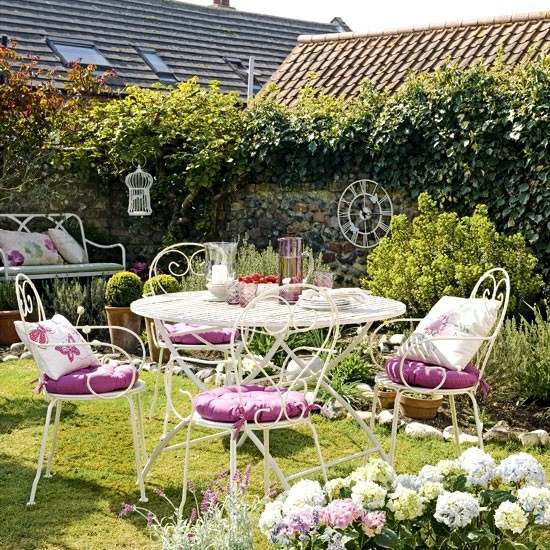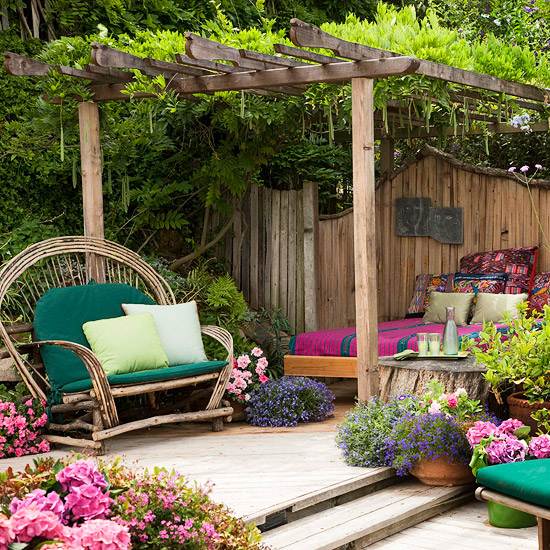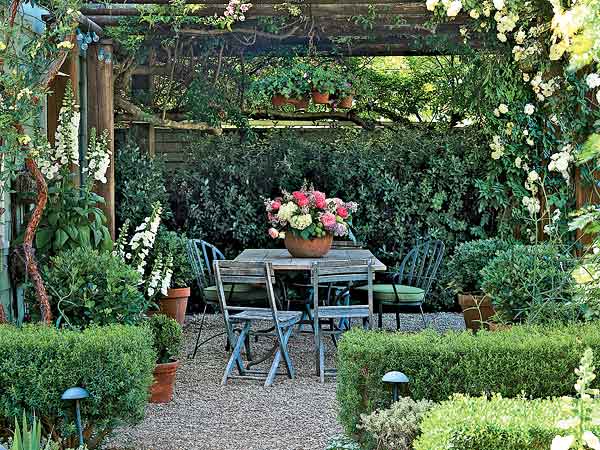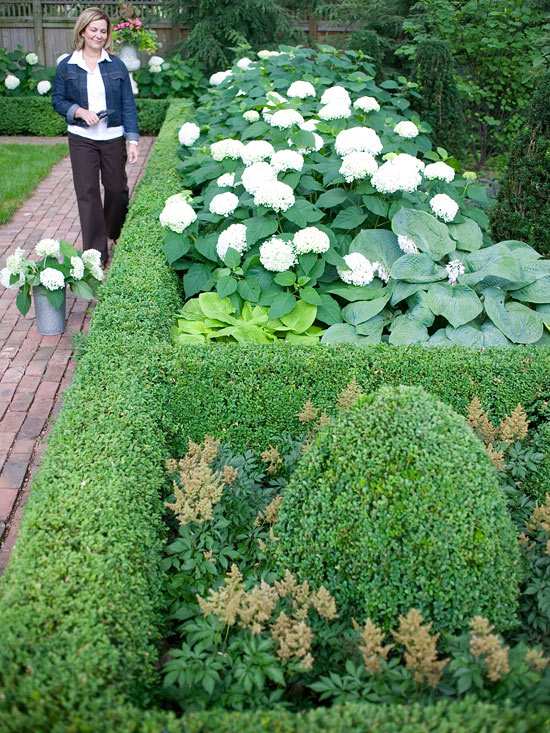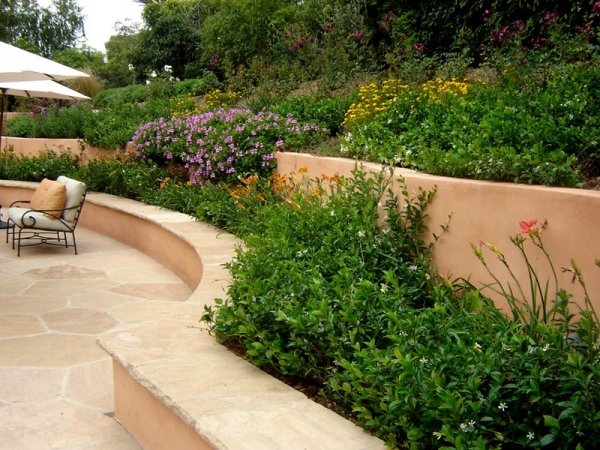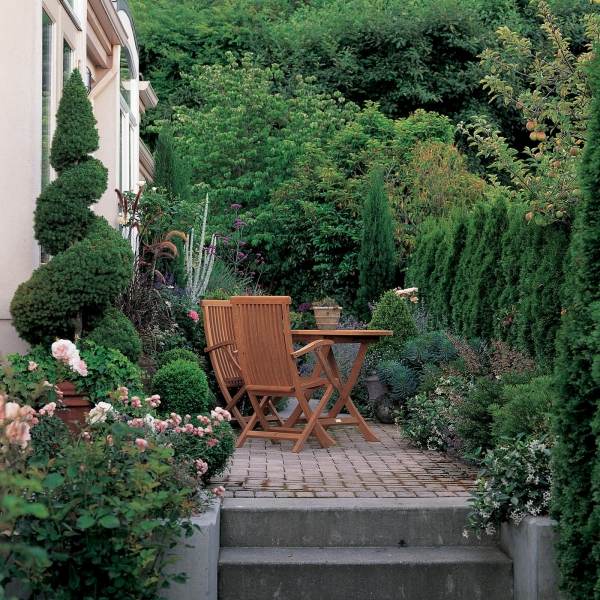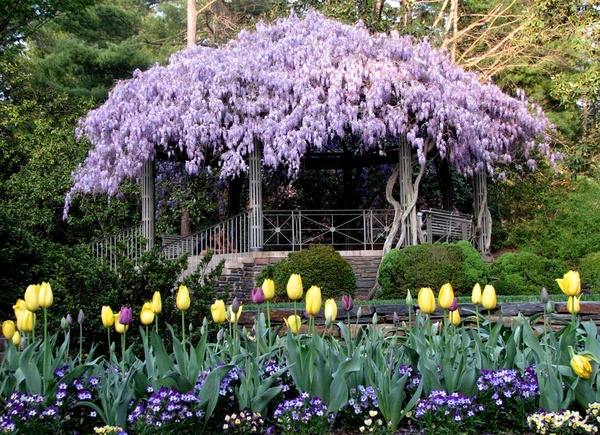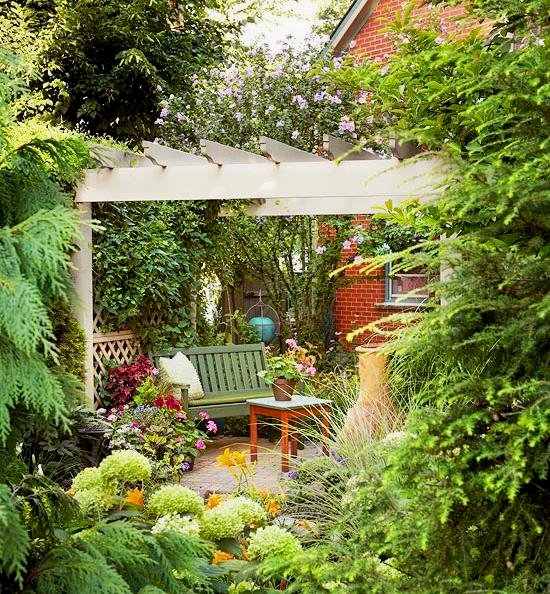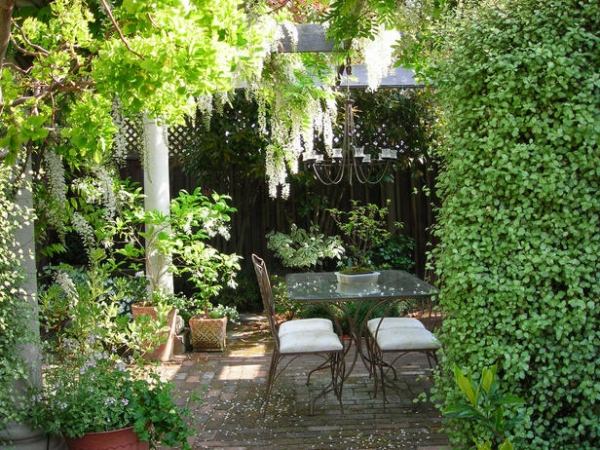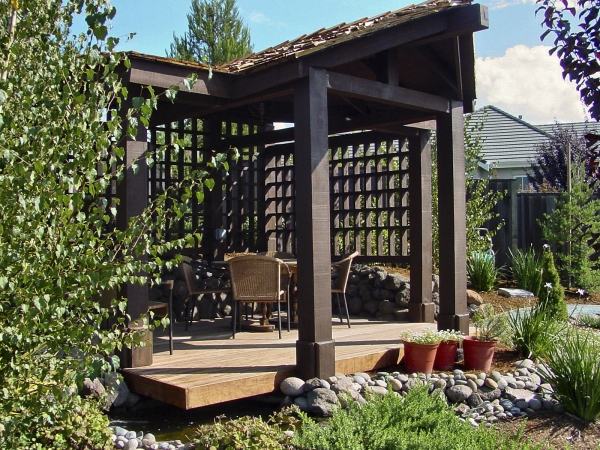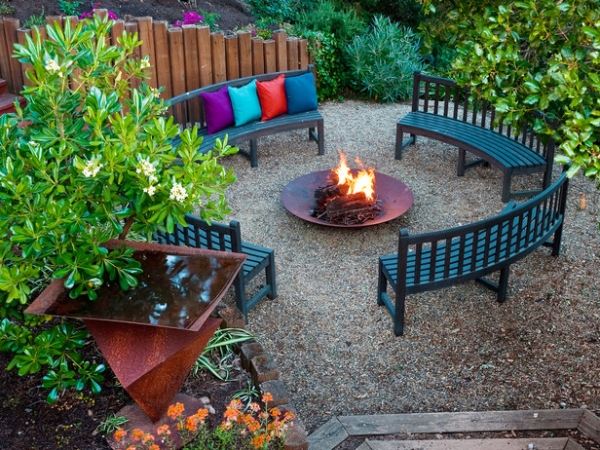Your garden is furnished to a personal retreat, so you take into account the privacy protection in the garden by adding elements that protect your privacy. Try these simple tips for planning your own private garden.
Privacy protection in the garden – stone wall and fence plants
The most obvious and quickest way for privacy protection in your garden is to build a fence. Fences keep the attention of your neighbors away from your garden. They also give a sense of enclosure and security, as a result, it is a perfect choice if you have children. Fences keep children inside and strangers – or animals, such as dogs – outside. If you want to build a fence as a screen in the garden, choose a material and style that complement your home.
Privacy protection in the garden – the wooden fence
Tip: If you want to to take care of the privacy protection in your garden, take a look around before you start building a fence. You might be able to use some existing structures. For example, you add a small patio area to your garage or house. Umbrellas only one or two pages might be enough.
If a fence is too much, you can grow a hedge. There are many hedge plants that would be perfect for the privacy in the garden. For a natural look, combine a variety of hedging plants. Experiment with the height, color and shapes. In this way, you can create a beautiful mosaic of plants. For a neater look, cut the hedge plants regularly.
Tip: The best time to cut your hedge, depends on what type of hedging plants you grow. It is important for the good look of your hedge, that the bottom is wider than the top. Species that are suitable as hedge plants: boxwood (Buxus sempervirens), juniper (Juniperus scopulorum ‘Skyrocket’), columnar white pine (Pinus strobus ‘Fastigiata’), English laurel (Prunus laurocerasus), Pittosporum (Pittosporum tobira), privet (Ligustrum vulgare), Yaupon holly (Ilex vomitoria), yew (Taxus x media).
Garden slopes are basically miniature hills in the countryside. To add height, can be an effective way to create privacy. A garden slope is also good for highlighting smaller plant species, and you can bring them up to eye level. Due to the sloping sides, berms are better than flat beds. They are suitable for rock gardens, and most plants are suitable. Landscaped garden slopes create a useful and physical curtain between the street and the yard. Place rocks and stones for stability.
Tip: If you make a garden slope, usually the ratio applies from one foot height to four feet wide, to prevent the soil running down the slope.
While a pergola probably can not provide good protection, this is a great solution for adding privacy to a smaller space. A pergola decorated with climbing plants creates a private, shady corner – perfect for a lonely bench or terrace. A pergola adds a year-round structure of the landscape. You can create different levels of privacy with pergolas. Hanging leaves and eco-friendly fabrics serve as curtains and add even more seclusion.
If you want to hide only a point or two from view, use wood lattice and beautiful colorful climbing plants. Vines give the garden lattice an interesting appearance and integrate it into the landscape. Be sure that you have the right kinds of climbing plants for the right place. Large vines can easily crush the wood lattice. Small plants on the other side are not big enough to cover a large pergola and offer enough privacy in the garden.
Top Small Climbers:
Black-eyed Susan vine (Thunbergia alata), Cardinal climber (Ipomoea x multifida), clematis (Clematis) Hyazinth bean (Lablab purpureus), field bindweed (Ipomoea tricolor)
Top Large Climbers:
American Bittersweet (Celastrus scandens), Chocolate vine (Akebia quinata) Climbing hydrangea (Hydrangea petiolaris), Hardy Kiwi (Actinidia arguta), Trumpet Flower (Campsis radicans), Wisteria.

